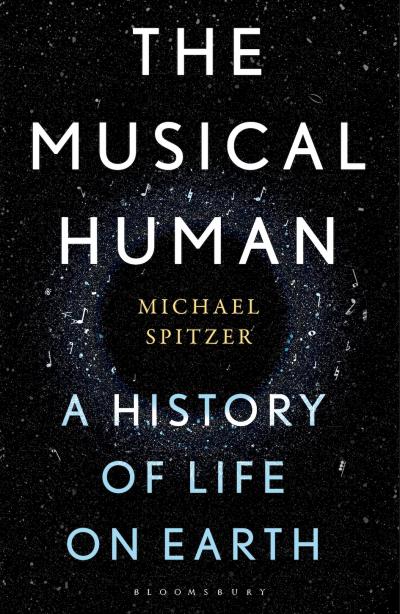Music and time each dwell inside the other. And the more you attend to musical sounds, the more complex their temporal entanglements become. Time structures music, rhythmically and in its implied narratives. From outside, we place it in biographical time, whether cradle songs, serenades to a lover or wakes. Then music sits in history, yet somehow also apart from it, the latest sounds prone to evoke links between sonic effects and emotion that feel inexpressibly ancient. More ancient still, when we muse on bird choruses, animal cries or the thousand mile songs of whales, human music seems to carry echoes of the deep evolutionary past.
Michael Spitzer’s hefty widescreen history deals with all three timescales, taking each in turn. So his book gradually widens in scope, each part enfolding the previous one and reframing it. He presents this as taking us “where music wants to lead”, and makes a good case that’s true. It’s a tricky structure to bring off – each part could easily fill a whole book. The longest, central, portion is in some ways the least readable. It considers the development of many musics through human history, bringing together very little palaeoanthropological evidence (sound does not endure) with a heap of historical and more recent ethnographic testimony. There are so many examples of this culture interacting with that one in apparently similar ways that it’s easy to lose track of the point being made. These chapters sometimes exhibit too many trees to allow us to view the wood.
 That doesn’t hamper the opening section, where he depicts life in a present-day the reader already knows and which is, in some senses, saturated with music. Nor the final section, on longer-term evolution of the capacities that led to music-making, where he draws on yet more disciplines to build his story. He seems pretty well-informed on matters biological, though he tends to overrate the significance of a scatter of findings from neuroscience. Learning to play an instrument changes your brain. True, but then so does everything else you do.
That doesn’t hamper the opening section, where he depicts life in a present-day the reader already knows and which is, in some senses, saturated with music. Nor the final section, on longer-term evolution of the capacities that led to music-making, where he draws on yet more disciplines to build his story. He seems pretty well-informed on matters biological, though he tends to overrate the significance of a scatter of findings from neuroscience. Learning to play an instrument changes your brain. True, but then so does everything else you do.
It’s an impressive synthesis overall, though. The central section has a well-balanced discussion of the place of western classical music in the global picture. Spitzer proposes that three weapons – notes, notation and polyphony – are the musical equivalent of Jared Diamond’s guns, germs and steel in promoting the dominance of one brand of music. But his account of colonisation and decolonisation is also alive to the ways in which material dominance, usually achieved through relentless violence, ushered in cultural ascendancy.
Along the way, he has interesting things to say about the losses, as well as gains, from setting music down in a score, instituting a never-ending competition between new composers and the written instructions of their predecessors. And he conveys how the whole cultural movement that goes with that, from music as a participatory joy and a communal rite to the professionalisation of music-making and non-players being consigned to politely silent, immobile audiences, is a distinctly mixed blessing.
Is this a complete account, a “big history” of music and humans? I’d say not. There is too much music in the world (let alone history) to do justice to. His range of cultural reference is impressively wide, but he leans heavily on academic ethnomusicology. His own listening – with a day job as a professor of music, specialising in Beethoven – clearly doesn’t take in very much jazz, rock or folk music, or at least, it allows him to say some pretty odd things about them. And while he is honest about how much the narratives he builds have to join the dots with speculation, he does throw in some just-so stories that seem more likely to amuse than inform. Ice age song was probably monophonic so that words would be heard clearly across the distance separating scattered settlements, he proposes. Um, OK.
He’s also occasionally defeated, as he acknowledges any writer may be, by the need to describe music in words. It’s intriguing to know that Shostakovich’s little-known pupil Galina Ustvolskaya was the better composer, but learning that a listener to her final piano sonata will be “pummelled with truth” does not leave the reader much the wiser.
Does that matter? Not enough to deny the book a recommendation. As Spitzer observes, internet users have access to all music now, all the time, so you just need to allow extra time to listen while reading – quite a lot of time for these 400 pages. That will give you more time to ponder Spitzer’s big question of how this marvellous activity arose in our species.
Like the origin of life, ideas about the origin of music can’t be tested fully until we have more than one example to study. In 1866, the French Société de linguistique became so weary of untethered theorising about the origins of music and language that it forbade further discussion. A wealth of new information since then has re-opened the topic, and the new discipline of biomusicology has become a serious academic effort in recent decades.
The idea that early hominins had a set of capacities that added up a common precursor of music and language now seems pretty plausible. When Homo sapiens came along, this “musilanguage” system allowed the emergence of two great systems of communication with sound – words and music. Ever since that separation, some have tested the limits of language in expressing what is most important about music. Of course, if it was possible to capture music in language we wouldn’t have both. But this provocative, humane book is one of the most beguiling attempts to bridge the two realms. The writing always feels informed by a deep love of music and the richness of its ideas is nourishing, and only occasionally indigestible. There is something informative, enlightening, and – when you think about it – possibly wrong on almost every page, and anyone who cares for music will enjoy pondering which is which.
- The Musical Human: A History of Life on Earth by Michael Spitzer (Bloomsbury, £30.00)
- More book reviews on theartsdesk















Add comment